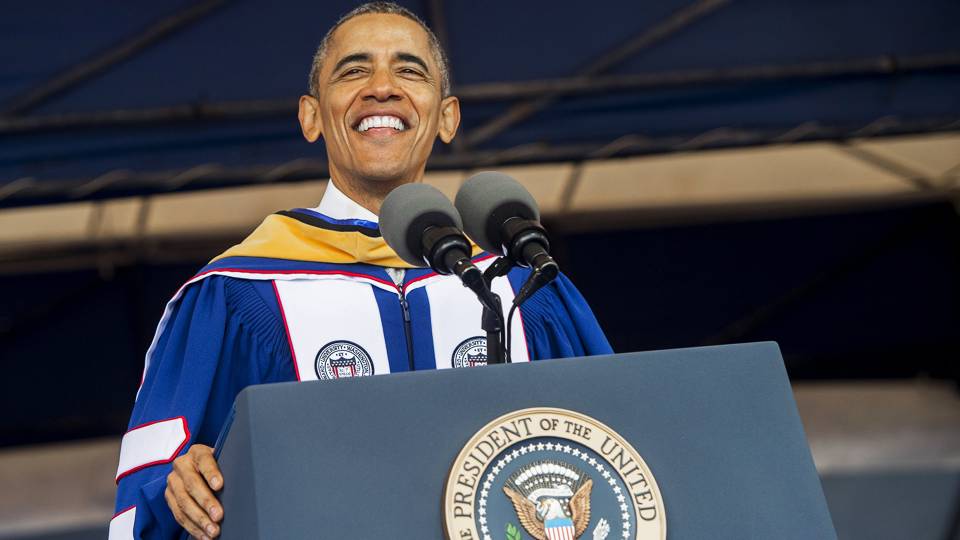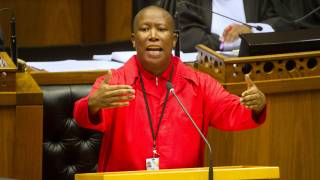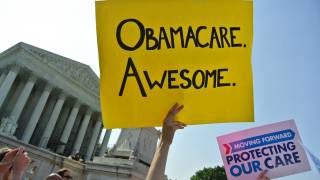Obama Tells African Americans It's Their Victimhood That Ties Them Together
Speaking at the Howard University graduation ceremony in Washington, D.C., President Obama told the graduates of the historically black college to "be confident in your heritage. Be confident in your blackness."
Obama also criticized people who are "successful and don’t realize they've been lucky.
"First of all -- and this should not be a problem for this group -- be confident in your heritage. (Applause.) Be confident in your blackness. One of the great changes that's occurred in our country since I was your age is the realization there's no one way to be black. Take it from somebody who's seen both sides of debate about whether I'm black enough. (Laughter.) In the past couple months, I've had lunch with the Queen of England and hosted Kendrick Lamar in the Oval Office. There's no straitjacket, there's no constraints, there's no litmus test for authenticity," Obama said.
"Second, even as we each embrace our own beautiful, unique, and valid versions of our blackness, remember the tie that does bind us as African Americans -- and that is our particular awareness of injustice and unfairness and struggle. That means we cannot sleepwalk through life. We cannot be ignorant of history. (Applause.) We can't meet the world with a sense of entitlement. We can't walk by a homeless man without asking why a society as wealthy as ours allows that state of affairs to occur. We can't just lock up a low-level dealer without asking why this boy, barely out of childhood, felt he had no other options. We have cousins and uncles and brothers and sisters who we remember were just as smart and just as talented as we were, but somehow got ground down by structures that are unfair and unjust.
"And that means we have to not only question the world as it is, and stand up for those African Americans who haven't been so lucky -- because, yes, you've worked hard, but you've also been lucky. That's a pet peeve of mine: People who have been successful and don't realize they've been lucky. That God may have blessed them; it wasn't nothing you did. So don't have an attitude. But we must expand our moral imaginations to understand and empathize with all people who are struggling, not just black folks who are struggling -- the refugee, the immigrant, the rural poor, the transgender person, and yes, the middle-aged white guy who you may think has all the advantages, but over the last several decades has seen his world upended by economic and cultural and technological change, and feels powerless to stop it. You got to get in his head, too."






















